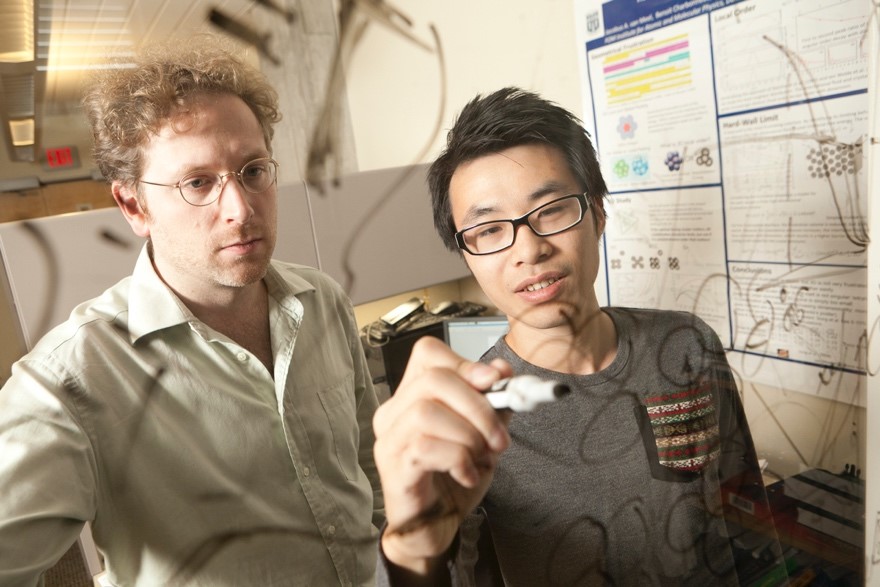 Duke’s scholars probe some of the most foundational questions to mankind, and routinely publish their research results in internationally recognized publications. Professor Patrick Charbonneau, who maintains appointments in both Chemistry and Physics, for instance, combines analytical theory and numerical simulations to explore various questions surrounding soft materials, such as gels, glasses and packing of grains. Prof. Charbonneau and his research group publish prolifically within the field of soft matter, including solving a 30-year-old mystery about low-temperature disordered materials and teaching a machine to spot a crystal.
Duke’s scholars probe some of the most foundational questions to mankind, and routinely publish their research results in internationally recognized publications. Professor Patrick Charbonneau, who maintains appointments in both Chemistry and Physics, for instance, combines analytical theory and numerical simulations to explore various questions surrounding soft materials, such as gels, glasses and packing of grains. Prof. Charbonneau and his research group publish prolifically within the field of soft matter, including solving a 30-year-old mystery about low-temperature disordered materials and teaching a machine to spot a crystal.
Prof. Charbonneau is a proponent of open data and research data sharing and archiving. He has built into his research’s workflow a process ensuring that every article published by his group includes a Digital Object Identifier (DOI) that links to the underlying data, which have been made publicly available in the data repository here at Duke. For Charbonneau, “archiving data this way ensures reproducibility of the underlying science and long-term stability of the work, despite the natural turnover in my research group’s composition. It thus brings our research practice in compliance with data management requirements of funding agencies, and helps us respond promptly to external requests for our data. In addition, the very process of depositing gives us the opportunity to validate figures one last time, as we copy-edit page proofs.”

As of early 2019, the Charbonneau group has used Duke’s Research Data Repository to make publicly available more than 20 datasets. Such access not only makes Charbonneau and his colleagues’ work more visible, it also reinforces unfettered intellectual inquiry, fosters transparency, reproducibility and broader analysis, and permits the creation of new datasets upon combining data from multiple sources. All data within Duke’s open data repository also receive professional curation by library staff that involves the preparation and enrichment of research data to ensure that they are well described, documented, formatted, and preserved.
To learn more about making your data openly accessible, visit the Research Data Repository website.
You can learn more about Prof. Charbonneau’s research through his Scholars@Duke profile.
Images: top left – The Charbonneau group in March 2018: Dr. Sho Yaida, Prof. Charbonneau, Yi Hu, Dr. Joyjit Kundu, and Irem Altan. All have deposited some of their work to the Reseach Data Repository; bottom right – Prof. Charbonneau with then graduate student, Lin Fu, in 2012. The Research Data Repository helps Dr. Fu’s research results remain easily accessible long after his graduation from Duke.

